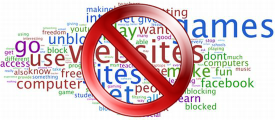 Censorship of the Internet has increased dramatically over the last few years and it is not only the ‘usual suspects’ countries of China, Iran and the Middle East but increasingly Western Governments are now seeking to gain control of the world wide web.
Censorship of the Internet has increased dramatically over the last few years and it is not only the ‘usual suspects’ countries of China, Iran and the Middle East but increasingly Western Governments are now seeking to gain control of the world wide web.
The recent widely publicised protests against the SOPA and PIPA acts in the US are a case in point. The acts, largely driven by the entertainment industry to prevent online piracy via illegal file downloading, were so badly written that they could have affected any sites with heavy user generated content. Sites like Twitter and YouTube would have found it impossible to police all user accounts and may have ceased to exist. Although the bills were shelved you can be sure they will come back in a different form in the near future.
The fact remains that nearly all governments attempt to impose some form filtering and many schools and offices also block users from accessing certain websites.
Website blocking and filtering can be done at a national or institutional level or down to individual websites and users via black lists. Blocking and filtering may also vary between countries and across different ISPs.
And yet, despite worries about privacy and fraud, most people around the world regard free, unrestricted access to the internet as a fundamental right and do not want governments to regulate it.
How to unblock websites
There are many different methods to unblock websites and bypass Internet censorship, including virtual private networks (VPNs), IP Proxies and hiding software. Different methods differ in their ease of use, speed, security and related risks. Most work by gaining access to the Internet via a connection that is subject to different website blocking or filtering, for example in a different jurisdiction not subject to the same censorship laws.
Using a VPN Service: Using VPN software allows you to establish a connection to the internet via the VPN provider’s servers which are usually located in less censored countries around the world. The connection is secure, encrypted, and anonymous as your IP address is hidden and your geographic surfing location can be changed. A good VPN service covers your entire connection and is both fast and secure.
Using Proxy Software: Proxy software is similar to a VPN in that you use it to establish a connection to the internet via the proxy’s server and therefore your own IP address is changed and you are anonymous to the site you are connecting to. However, it does not secure your entire connection and is not encrypted and is less secure.
Using a Web IP Proxy: Usually free, you can use a Web proxy to surf anonymously online and protect your online identity. This hides from the service providers the address of the website you are trying to visit. However, speeds may vary dramatically and many IP addresses are frequently blocked by web censoring filters.
Using TOR: The Onion Router (TOR) is free software that channels data through multiple nodes to prevent the original data from being unscrambled which protects the privacy and security of its users. Whilst free, TOR can be a bit slow for anything more than just light browsing.
Using a Mobile Simulator: Opera offer a web based simulation of how websites will look like on their mobile platform, Opera Mini. This re-routes the connection via their servers and may unblock some websites although the results may not be that great.
loading...
